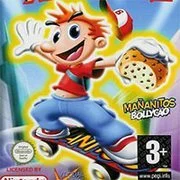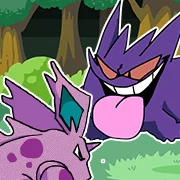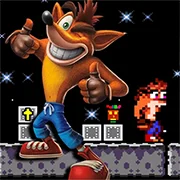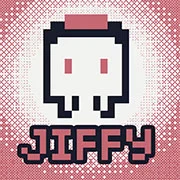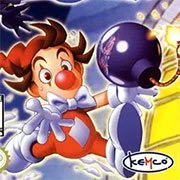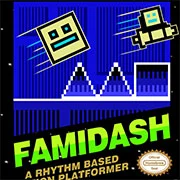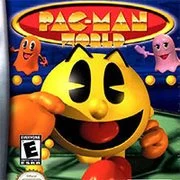Morning Adventure
The Morning Adventure is a unique platformer advergame tied to Mañanitos, a chocolate chip bun popular as a breakfast food in Spain, marketed by Panrico. Developed by Bit Managers and released in 2003, this game is a curious piece of video game history given that it was never released to stores, remaining largely unknown outside of specific circles.
Gameplay Overview
In The Morning Adventure, players take on the role of “Mañanito Boy,” navigating through a series of domestic and school-related challenges spread across five stages, plus a boss level. The game unfolds mostly in familiar settings such as a house and school, reflecting everyday routines. The gameplay involves completing straightforward missions like waking up siblings, cleaning up after breakfast, and getting to school on time—integrating the Mañanitos product into the narrative and mechanics.
Game Mechanics
The game features basic platforming elements:
- Collectibles: Similar to coins in Mario or rings in Sonic, collecting 100 of these gives Mañanito Boy an extra life.
- Power-ups: Consuming a Mañanito bun in-game enhances Mañanito Boy’s abilities, allowing him to run faster and jump higher, which is essential for overcoming certain obstacles and progressing through the levels.
- Interaction with Objects: Players can press ‘B’ to pick up objects like crates and springs, which are instrumental for solving puzzles—mainly involving leaping over high walls.
English Translation Patch
The game recently received an English translation patch, making it accessible to a wider audience. This patch does more than merely translate the text; it recreates the original’s somewhat kitschy charm, emphasizing the humorous notion that “Mañanitos can solve just about any problem.” This translation allows players not only to experience the game’s mechanics but also to appreciate the full, humorously tacky package as it was meant to be enjoyed.
Cultural and Marketing Context
As an advergame, The Morning Adventure serves as a marketing tool designed to promote Mañanitos. These types of games were more prevalent in the early 2000s and were used as novel ways of advertising food products, especially to younger demographics. The integration of product placement within the game mechanics showcases an interesting blend of marketing and gaming.
Conclusion
The Morning Adventure stands as a fascinating example of how video games can be used in marketing. While the game itself may not offer groundbreaking gameplay, its context as a promotional tool for a breakfast bun, combined with its limited release and subsequent translation, make it a noteworthy title for those interested in the intersection of gaming and advertising. For collectors and enthusiasts of obscure games, or those intrigued by advergames, “The Morning Adventure” offers a snapshot of a unique moment in gaming history.
